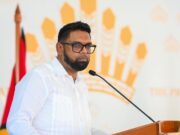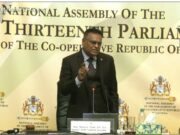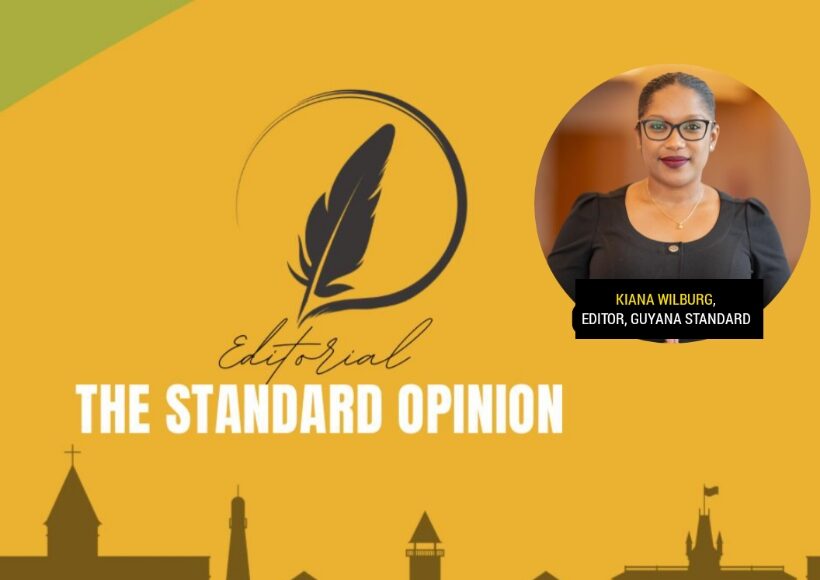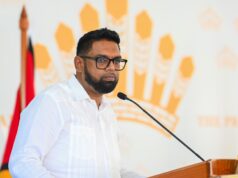By Kiana Wilburg
The 2025 elections race is in full swing, with no shortage of drama. A US-sanctioned businessman is making his play for High Office, the two largest opposition forces are hot and cold about joining forces, and those politicians who crossed the floor are feeling the heat. Then, there are developments at the Guyana Elections Commission (GECOM), currently in preparation for the September 1 poll.
In recent times, GECOM Commissioners have been at loggerheads on several issues, one being the right of prisoners to vote. Commissioners representing the interest of the opposition argue that this right is enshrined in the Constitution and should be upheld. In fact, Article 159 of the Constitution outlines that prisoners, save and except for those who are convicted of elections related offenses, have a right to vote. So, not only do prisoners have the right to fair treatment, but the supreme law of the land preserves their right to have a stake in the democratic process. What the constitution also reinstates is that while prisoners or persons on remand may lose their freedom for a time, it does not equate to losing the moral and human right to vote.
One can argue that by upholding such rights, the system could help its cause to rehabilitate prisoners as they are able to stay informed about societal issues and remain connected to their communities. This connection could even potentially lower recidivism rates, as individuals who feel like they are still part of society may be more motivated to reintegrate positively.
Commissioners for the government’s side are not denying this right as enshrined in the constitution. However, GECOM Commissioner, Sase Gunraj is on record stating that there are no legal or procedural provisions in place to cater for this. In fact, Gunraj said on a recent podcast show that GECOM can only act within the confines of the law; therefore, it can only be catered for if the government of the day makes the legal provisions for this to be so.
It should be noted however that the right of prisoners was raised in an observer mission report. Specifically, the Carter Centre Observer Mission report, produced after the 2020 elections, states the following: “GECOM should take steps to ensure that procedures for elections facilitate the voting rights of all eligible voters, including prisoners…Eligible Guyanese should not have to sacrifice their legal rights because of a lack of procedures.”
While it did not make a similar recommendation, the report of the EU Observer mission also made a similar note stating: “no arrangements were made for eligible detainees and prisoners to exercise their franchise.”
GECOM has already made its decision on the matter, stating categorically that prisoner voting would not be a feature in the 2025 elections due to legal constraints. Given that the prisoner population is well over 2000 individuals, this editorial posits that GECOM should strive to examine, at least for the next electoral cycle, the extent to which this process could be facilitated. Such a move not only lends to the strengthening of our democracy but it also ensures no stone is left unturned in upholding the constitutional rights of all citizens. As noted earlier, the Constitution makes it clear that the right to vote is granted to all Guyanese, barring those convicted of electoral offenses. To not make provisions to ensure this is done, treats the right to vote as a “privilege” which when not implemented, can be seen as an indirect sanction against these persons.
It is also important to note that there are other notable recommendations by the Carter Centre. These include the need for stronger campaign financing laws and increased transparency regarding GECOM’s work. On the latter, the Carter Centre was keen to note: “Although GECOM meets regularly, the meetings are closed, and the agendas for the meetings, decisions taken, and minutes are not published.”
Even as these and other recommendations from other Observer Missions such as those from CARICOM and the European Union remain unaddressed, Guyana’s Attorney General and Minister of Legal Affairs insists that the legislative reforms made to date are far more superior to the observer reports, both qualitatively and quantitatively. He told Guyana Standard that the government has made over 100 amendments to the law, all with the aim of ensuring that deficiencies exploited in 2020 by GECOM officials as well as political actors are never exploited again. He assured that the system has been made more transparent, more accountable, and difficult to compromise.
For those who have followed parliament over the years, the AG has said repeatedly that amendments to the law benefitted from a highly consultative process that lasted nearly one year where GECOM, civil society organizations and political parties were invited to make recommendations. Nandlall has argued that these amendments are politically neutral, that is to say, they are not intended at all to create any electoral advantage in favour of any political party or to prejudice any political party.
As the nation awaits the 2025 elections, one cannot help but note that the criminal charges arising out of the cases on the 2020 electoral rigging by opposition aligned parties remain tied up in court. This is yet another sore issue that has to be addressed. A nation must not be made to wait 5 years for justice to be served. Swift judicial action is essential not only to uphold the integrity of the electoral process but also to strengthen public confidence in the justice system. Citizens deserve to see their laws applied fairly and promptly, especially in matters that threaten the very foundation of democracy. The judiciary must rise to the occasion in this respect.











